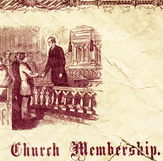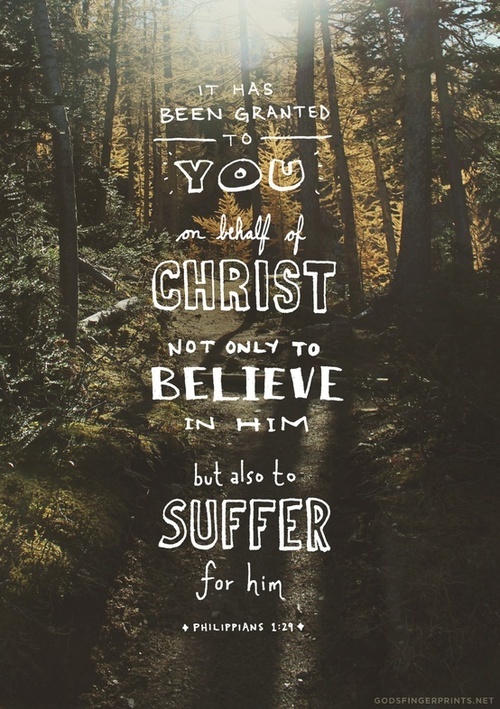 In an article entitled “Helpful Questions for Discerning a Credible Profession of Faith” Jeffery Smith writes:
In an article entitled “Helpful Questions for Discerning a Credible Profession of Faith” Jeffery Smith writes:
Ebenezer Morris was a powerful preacher in Wales, little known about today. He lived and preached during times of great revivals there and went home to be with the Lord at the age of 56 on Monday, August 15th, 1825. There’s a whole chapter devoted to his life in Volume Two of The Calvinistic Methodist Fathers of Wales, (reprint 1897, trans. John Aaron 2008 [Carlise, PA: The Banner of Truth Trust, 2008]).
A couple of days before his death two young preachers came to him seeking his advice. What he told them included a very important caution. Before I quote it let me explain that the term “seiat” was the Welsh term for a Welsh Calvinist society meeting. These were organized societies of converts gathered for prayer, teaching and mutual exhortation. They were really, in essence, local churches, operating outside of the established Anglican church of the time. Morris told these two young preachers:
“If you two are allowed to live long then no doubt you will see a period for religion when hardly any new convert joins the seiat. At that time, do not drag unexercised men into the church but wait for God, and seek him, who in his own good time will succeed the work. God gave a promise to Abraham of a son, but Sarai felt the time was long and despaired that she would ever have the privilege of becoming a mother, and so she gave Hagar to Abraham, and Ishmael was born. He was not the son of the promise and this brought much sorrow to Sarai afterwards. So also, you must wait for God’s promise, and not go after the flesh, unto the children of the promise are found for the Church.”
This is very wise counsel, counsel much needed by many of us who are pastors. It speaks to the necessity of requiring a credible profession of faith before receiving a person into the membership of the church. In our church we have what we call a membership interview with any one asking to become member, as do many of you. Below I give a sample list of suggested questions that can be helpful in charitably discerning the credibility of a person’s profession insofar as we are able and required to do so as men who cannot see the heart. In fact, we have actually sometimes given these questions to younger converts and asked them to take them home and write out brief answers to bring back to us in a subsequent meeting. I’m not suggesting that all of these questions should be asked in a membership interview or that all, or any, of them should be handed out to take home to write out answers. I just mention these to give some ideas of the kinds of questions that might be asked. Good, carefully thought out, questions can go a long way in helping us discern where a person is and in guarding the church from the danger Ebenezer Morris spoke of in the quote above. Perhaps, pastors reading this blog might find these helpful. Some of these have been picked up from the suggestions of others. In cases where we actually hand out a document with these questions for a person to take home, at the top is the following introductory paragraph:
Please take the time to think carefully over these questions and answer them in your own words. These are not trick questions so don’t be nervous or worried. We simply desire to know about your understanding of the gospel and what God has done and is doing in your life and to encourage you to think about these things. This will also help facilitate profitable interaction in our membership interview.
Here are the questions that follow:
Are you a sinner? What makes a person a sinner?
Have you ever felt that you deserve God’s wrath and punishment because of your sins? If so why do you think that?
Besides outward sins what are some sins in your heart that you’ve been guilty of that God has shown you?
When Jesus died on the cross what was he doing that has to do with the salvation of sinners?
Can God just forgive sinners or was it necessary for Christ to die on the cross for God to do that? If so why was it necessary?
Are there any good works that you have done that you believe make it right for God to receive you as his child and take you to heaven? If not what are you trusting in for acceptance with God?
What are some verses of scripture that give you hope and comfort when you think about your sins and your relationship to God?
Do you ever pray and read your bible? If so how often?
What are some ways God has changed, or is changing, your attitudes and behavior?
What are some things God has been teaching you lately?
Do you desire, with God’s help, to follow and obey Christ in everything with no exceptions?
When God convicts you that you have sinned in some way what do you do?
Are there any problems you have in your relationship to any of the members of the church?
Do you ever get anything out of the sermons? If so could you give an example of a sermon, or of something in a sermon, lately that has helped you? If so how did it help you?

